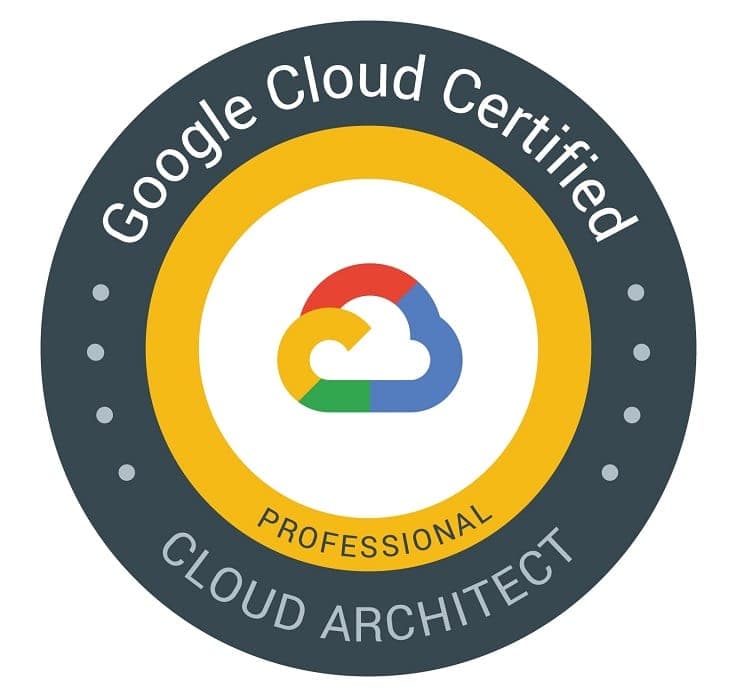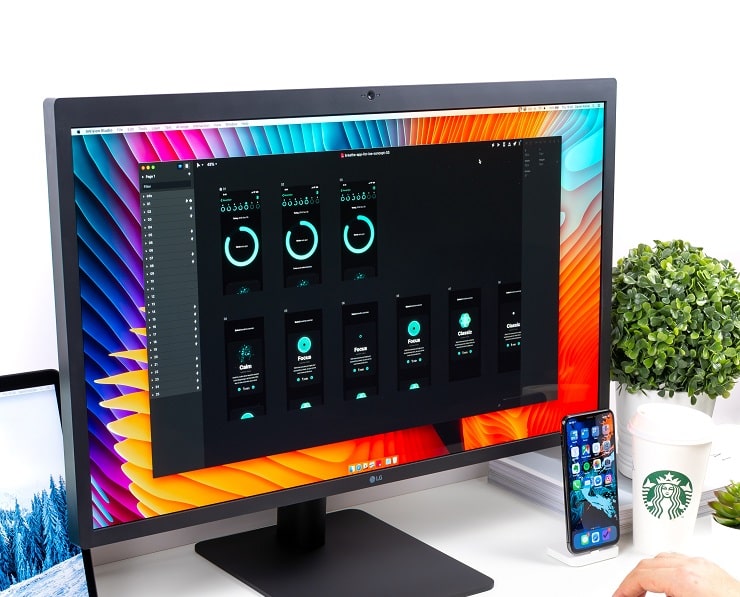Student Feedback
Associate Android Developer Certification Video Training Course Outline
Google Associate Android Develop...
Google Associate Android Developer Practice Exam
Associate Android Developer Certification Video Training Course Info
Pass the Associate Android Developer Certification: Full Practice Tests
Strengthen your skills with real exam-style questions and prepare effectively for the Associate Android Developer Certification.
What you will learn from this course
• Gain complete familiarity with the Google Associate Android Developer Certification exam format
• Practice with real exam-style multiple-choice and scenario-based questions
• Strengthen your skills in Android app fundamentals, UI, UX, data storage, and debugging
• Learn how to work with Android Studio, Gradle, and essential developer tools
• Improve your confidence by simulating real test environments and timing
• Identify and overcome knowledge gaps in Android application development
• Enhance your ability to build high-quality, performance-optimized Android apps
• Develop problem-solving strategies for mobile development challenges
• Reinforce your knowledge of background tasks, notifications, and app lifecycle management
• Prepare effectively for career opportunities as a certified Android developer
Learning Objectives
The main objective of this course is to help learners prepare thoroughly for the Associate Android Developer Certification exam offered by Google. This certification has become one of the most valued credentials for mobile developers and confirms a candidate’s ability to build reliable, efficient, and modern Android applications. By enrolling in this course, you will gain access to realistic practice tests that replicate the structure and complexity of the official exam. The goal is to ensure that you not only memorize facts but also learn how to apply Android development concepts in practical situations.
Another important objective is to enhance your understanding of key Android development practices, from creating user-friendly interfaces to implementing secure data storage solutions. You will also improve your skills in debugging, testing, and performance optimization, which are vital for any professional developer. This course is designed to challenge you, push your limits, and prepare you for both the exam and real-world projects. By the end of the course, you will have strengthened your foundation in Android development and gained the confidence to approach the certification exam with clarity and competence.
Target Audience
This course is designed for a wide range of learners who are motivated to pursue Android development as a career or who wish to validate their existing knowledge through certification. It is particularly beneficial for aspiring Android developers who want to start their professional journey by earning an industry-recognized credential. For experienced developers, this course serves as a refresher and a structured way to practice before attempting the official exam.
Mobile developers who have experience in other platforms such as iOS or cross-platform frameworks can also benefit from this course by transitioning into Android with the support of structured exam-style practice. Additionally, students of computer science or software engineering who are exploring mobile app development as a career path will find the course valuable in building both knowledge and exam readiness. The course also caters to freelancers and independent app developers who want to demonstrate their credibility to clients by holding a globally recognized Google certification.
Requirements
To make the most of this course, learners should already have a basic understanding of programming concepts such as variables, loops, data structures, and functions. Since the Google Associate Android Developer Certification focuses on real-world application building, it is also important to have some familiarity with object-oriented programming. While this course is structured to support learners at different stages, those who already have some hands-on experience with Android Studio will be able to progress more smoothly through the practice tests.
It is not necessary to be an expert developer to start this course, but you should have a genuine interest in mobile app development and the motivation to practice consistently. A personal computer or laptop with Android Studio installed will be required, along with internet access for updates, SDK tools, and libraries. Learners should also be comfortable reading technical documentation, as part of the exam preparation involves applying knowledge to realistic development scenarios.
Prerequisites
Before starting this course, learners should have completed at least introductory-level programming in either Java or Kotlin, as these are the two main languages used in Android development. Basic knowledge of Android app components such as activities, layouts, and intents will provide a solid starting point. You should also be familiar with installing and using Android Studio, running emulators, and creating simple applications.
A foundational understanding of user interface design principles, event handling, and basic database concepts will also be helpful. If you have previously built small projects or experimented with Android applications, you will find it easier to relate to the practice questions provided in this course. While advanced development experience is not required, having completed beginner-friendly tutorials or coursework in Android will ensure that you are ready to engage with the certification-level material.
Course Overview
The Associate Android Developer Certification Practice Test course is structured to give you a complete test-like experience. Each practice test is designed to closely simulate the actual exam conditions, including timing, question format, and level of difficulty. By working through these tests, you will gain insight into your strengths and weaknesses, enabling you to refine your preparation strategy.
The content covers all the critical areas assessed in the official exam, including application fundamentals, user interface design, data management, background services, and debugging techniques. Each question has been carefully created to reflect real development challenges, so you are not just memorizing answers but actually building practical problem-solving skills.
This approach ensures that you are well-prepared not only for the certification exam but also for real-world Android projects. You will become more comfortable working with Android Studio, Gradle, and Logcat, which are essential tools in the daily life of an Android developer. The course also places emphasis on best practices in mobile development, such as performance optimization, efficient resource management, and creating user-friendly app designs.
By the time you complete this course, you will have sharpened your technical expertise, improved your test-taking strategy, and developed the confidence to attempt the Associate Android Developer Certification exam successfully. More importantly, you will be better prepared to pursue professional roles in Android development, freelance projects, or even entrepreneurial ventures in the mobile app industry.
Course Modules / Sections
The Associate Android Developer Certification Practice Test course is divided into carefully structured modules, each designed to address specific areas of the exam and ensure comprehensive preparation. The modules are sequenced in a way that builds from foundational concepts toward more advanced development practices, offering a complete journey through the essential domains of Android development.
The first module introduces learners to the structure and objectives of the Google Associate Android Developer Certification. It explains the significance of the certification, the core competencies assessed, and the exam format. Learners become familiar with how practice tests are organized and how to approach them effectively. This foundational module sets the stage for the detailed technical sections that follow.
The second module focuses on application fundamentals. Learners are guided through topics such as the Android application lifecycle, activities, fragments, and navigation. The questions in this section mirror real exam challenges and test a developer’s ability to manage resources, handle intents, and structure applications for performance and scalability.
The third module emphasizes user interface and user experience. This section is dedicated to creating layouts, applying material design principles, handling user interactions, and ensuring accessibility. Learners will encounter practice questions related to XML layouts, view binding, event handling, and building intuitive user interfaces that meet industry standards.
The fourth module explores data persistence and storage. This involves working with shared preferences, SQLite databases, and content providers. Learners are tested on their ability to manage structured and unstructured data, maintain app performance when handling large datasets, and apply best practices for data security and storage optimization.
The fifth module is centered on debugging and testing. Practice questions challenge learners to identify errors, optimize code, and utilize debugging tools such as Logcat. Testing frameworks and strategies for writing unit tests and UI tests are also included. By mastering this module, learners improve both exam readiness and real-world development efficiency.
The sixth module covers background tasks and notifications. It introduces learners to services, broadcast receivers, and job schedulers. Practice tests assess the ability to manage long-running tasks, schedule processes efficiently, and design effective notification systems to improve app usability.
The final module consolidates knowledge by integrating Android development tools. Learners focus on Android Studio, Gradle builds, and emulator usage. This section ensures that candidates can demonstrate practical expertise with the tools that form the backbone of professional Android development. The course concludes with comprehensive practice tests that combine all modules, simulating the real exam environment and providing learners with a complete test-preparation experience.
Key Topics Covered
The course covers a wide range of key topics that align with the official Google Associate Android Developer Certification requirements. Each topic is represented in the practice tests to ensure that learners gain mastery over every area that might appear on the actual exam.
Application fundamentals are at the heart of the certification. Learners cover topics such as the activity lifecycle, app resources, manifest files, and inter-component communication. Understanding how applications are structured and executed is essential, and the practice questions in this area reinforce critical concepts about app architecture and deployment.
User interface and user experience form another major area of focus. The course covers XML layout design, themes, styles, menus, and navigation components. Learners also practice material design implementation, including responsive layouts, accessibility features, and interaction design. By mastering these topics, developers are able to create professional, user-friendly applications that enhance engagement and usability.
Data persistence and storage are crucial for creating reliable applications. The course includes topics such as local storage with shared preferences, structured data with SQLite databases, and integrating content providers. Learners explore best practices for managing application state, synchronizing data, and ensuring security in storage systems.
Debugging and testing skills are critical to passing the exam and succeeding as a developer. The course includes coverage of debugging with Logcat, managing exceptions, profiling applications, and optimizing performance. Testing strategies include writing unit tests, UI tests, and applying test-driven development principles to create robust applications.
Background tasks and notifications are another significant part of the curriculum. The practice questions cover services, alarms, broadcast receivers, and work managers. Learners are also trained in implementing push notifications, designing efficient background processes, and ensuring apps remain responsive while performing long-running operations.
The course also emphasizes Android development tools such as Android Studio, Gradle, and emulators. Learners practice using build tools, understanding dependencies, and customizing build variants. Mastery of these tools ensures not only exam success but also readiness for professional development environments.
Additional key topics include performance optimization, memory management, API integration, and adopting modern Android practices. By thoroughly covering these areas, the course ensures that learners are prepared for both the exam and real-world development challenges.
Teaching Methodology
The teaching methodology of this course is designed to replicate real exam conditions while providing a structured and supportive learning environment. The approach emphasizes practical engagement with exam-style questions, ensuring that learners build both knowledge and confidence as they progress.
The methodology begins with orientation, where learners are introduced to the structure of the exam and how the practice tests are organized. This helps learners set realistic expectations and develop effective strategies for approaching each section.
The core methodology relies on practice-based learning. Instead of relying on passive lectures, learners engage directly with multiple-choice and scenario-based questions that mirror the actual exam. This active participation ensures deeper understanding and better knowledge retention. Each question is designed to challenge the learner to apply Android development concepts rather than simply recalling facts.
Another critical aspect of the teaching approach is feedback and explanation. After each test or question attempt, learners receive detailed explanations that clarify why certain answers are correct and why others are incorrect. This reflective practice helps learners strengthen their conceptual understanding and avoid repeating mistakes.
The methodology also emphasizes progressive difficulty. The course begins with simpler questions to reinforce foundational knowledge and gradually introduces more complex challenges. This ensures that learners build confidence while continuously advancing toward exam-level complexity.
Practical relevance is also a key part of the methodology. Many of the questions are designed around real-world Android development scenarios, such as handling user data securely, managing app lifecycle events, or optimizing background services. This ensures that learners are not only prepared for the exam but also for practical work as developers.
Regular self-assessment is encouraged throughout the course. Learners are advised to take full-length practice tests under timed conditions to simulate the pressure of the real exam. This helps them build time-management skills, reduce anxiety, and develop strategies for handling difficult questions.
The course methodology also integrates reinforcement. Learners are encouraged to revisit explanations, reattempt questions, and track their progress over time. This iterative approach ensures continuous improvement and mastery of the exam content.
Assessment & Evaluation
Assessment and evaluation are central to this course, as they provide learners with the opportunity to measure their progress and identify areas for improvement. The course uses a structured evaluation system that closely resembles the actual exam scoring process.
The first type of assessment is formative assessment, which occurs throughout the practice tests. Learners receive immediate feedback on their performance, including explanations for correct and incorrect answers. This allows them to reflect on their understanding, correct misconceptions, and strengthen weak areas before moving forward.
The second type of assessment is summative assessment, provided through full-length mock exams. These exams replicate the official exam format, duration, and difficulty, offering learners a realistic experience. Performance in these assessments provides a reliable indication of exam readiness and highlights areas that require additional review.
Evaluation is not limited to scores alone. The course emphasizes qualitative evaluation, where learners reflect on their decision-making process, problem-solving strategies, and ability to apply concepts in real-world contexts. This deeper level of evaluation ensures that learners develop not only exam-specific skills but also long-term professional competencies.
Another important aspect of assessment is progress tracking. Learners are encouraged to monitor their performance across different modules, identifying consistent patterns of strengths and weaknesses. This targeted evaluation helps learners allocate study time effectively and focus on areas where improvement is most needed.
The course also integrates evaluative feedback designed to build confidence. Instead of treating mistakes as failures, the assessment system frames them as opportunities for growth. This positive reinforcement helps learners stay motivated, even when facing challenging material.
Time management is also evaluated as part of the assessment process. By practicing under timed conditions, learners develop the ability to pace themselves during the actual exam. This reduces stress and ensures that they can complete all sections of the test within the allotted time.
Ultimately, the assessment and evaluation structure of the course ensures that learners are fully prepared for the Google Associate Android Developer Certification exam. By consistently practicing, reflecting, and improving, learners gain the knowledge, skills, and confidence needed to succeed both in the exam and in their careers as Android developers.
Benefits of the Course
The Associate Android Developer Certification Practice Test course provides numerous benefits for learners seeking to excel in Android development and achieve official certification. One of the most significant advantages is the ability to practice with real exam-style questions that closely mimic the format, style, and complexity of the official Google certification exam. By engaging with these questions, learners gain a realistic understanding of what to expect during the test and build confidence in their knowledge and problem-solving abilities.
Another benefit is the comprehensive coverage of all core areas of Android development. Learners are exposed to application fundamentals, user interface design, data persistence, debugging, background tasks, notifications, and tool usage. This thorough approach ensures that candidates develop a well-rounded skill set, which is not only essential for passing the exam but also for succeeding in professional development roles.
The course also emphasizes practical learning. Every question is crafted around real-world development scenarios, allowing learners to apply theoretical knowledge in a practical context. This approach reinforces critical thinking and problem-solving skills, which are essential for developers working in dynamic and challenging environments.
Confidence building is another key benefit. By simulating real exam conditions and providing detailed feedback for every question, the course helps learners reduce exam anxiety and approach the test with a clear, focused mindset. Understanding why answers are correct or incorrect allows learners to strengthen weak areas and reinforce strong concepts.
The course additionally supports career advancement. Achieving the Google Associate Android Developer Certification validates professional expertise in Android development and enhances employability. Certified developers can demonstrate their ability to build high-quality applications, implement best practices, and solve real-world problems, which is highly valued by employers and clients alike.
Furthermore, the course enables efficient self-assessment. Learners can track their progress across multiple practice tests, identify knowledge gaps, and allocate their study time effectively. This focused preparation increases the likelihood of passing the certification exam on the first attempt and ensures readiness for future development challenges.
The course also fosters skill retention and long-term learning. By regularly engaging with practice tests and reviewing detailed explanations, learners internalize core concepts and techniques. This continuous reinforcement helps ensure that knowledge gained during preparation is retained and applied effectively in real-world projects.
Finally, the course offers flexibility in learning. Participants can complete practice tests at their own pace, revisit difficult topics, and focus on areas that require improvement. This adaptable structure caters to learners with varying schedules, experience levels, and learning preferences, making it suitable for both students and working professionals.
Course Duration
The Associate Android Developer Certification Practice Test course is designed to provide a comprehensive and effective preparation experience within a manageable timeframe. While the duration may vary depending on the learner’s prior experience and familiarity with Android development, the recommended study plan ensures thorough coverage of all exam topics while maintaining a practical pace.
On average, learners can expect to spend approximately 20 to 30 hours completing the full course. This includes time for engaging with multiple practice tests, reviewing explanations for each question, and revisiting topics that require additional attention. The course is structured to allow learners to distribute this time over several days or weeks, accommodating varying schedules and learning speeds.
For beginners or those with limited Android experience, a slightly longer duration may be necessary to fully grasp fundamental concepts, develop practical skills, and build confidence. Learners with prior experience in Android development or programming may progress more quickly through the practice tests, focusing primarily on mastering exam-style question strategies and reinforcing knowledge gaps.
The course is divided into structured modules and sections, allowing learners to approach preparation in a step-by-step manner. Each module is designed to focus on a specific area of the exam, ensuring targeted learning while maintaining a logical progression from foundational topics to more advanced concepts.
Learners are encouraged to pace themselves according to their comfort level, taking time to review detailed explanations and repeat practice tests as needed. This flexible approach ensures that participants can internalize concepts effectively and retain skills for both the exam and real-world development applications.
Additionally, periodic self-assessment and progress tracking are integrated into the course structure. This allows learners to evaluate their readiness for the exam, adjust study schedules if necessary, and focus on areas requiring improvement. By adhering to a structured timeline while allowing flexibility, the course maximizes both learning efficiency and exam readiness.
Tools & Resources Required
To make the most of the Associate Android Developer Certification Practice Test course, learners will need access to specific tools and resources that are essential for Android development and exam preparation. The primary tool required is Android Studio, the official integrated development environment (IDE) for Android applications. Android Studio provides all the features needed to create, test, and debug Android apps, and familiarity with this environment is essential for both the practice tests and the certification exam.
Learners will also need a computer or laptop with sufficient processing power and memory to run Android Studio and emulator instances smoothly. While the software is compatible with Windows, macOS, and Linux, it is recommended that learners ensure their system meets the minimum requirements for optimal performance.
A stable internet connection is important for downloading updates, SDK packages, libraries, and sample projects. Regular updates to Android Studio and associated tools ensure compatibility with the latest Android APIs and development practices. Internet access is also required for accessing course materials, submitting practice tests, and reviewing detailed explanations.
Familiarity with either Kotlin or Java programming languages is necessary, as these are the primary languages used in Android development. Learners should have access to appropriate documentation, tutorials, or reference guides for their chosen language. Having this background allows participants to focus on applying concepts in practice tests rather than learning basic syntax or programming principles during the course.
Additional resources may include online references for Android API documentation, guides on material design principles, and tutorials for using development tools such as Gradle, Logcat, and emulator configurations. These resources supplement the practice tests and provide learners with guidance for understanding complex topics and implementing best practices.
It is also recommended that learners maintain a notebook or digital document to track progress, note explanations for challenging questions, and summarize key concepts. This practice enhances retention, reinforces learning, and serves as a quick reference for review before attempting the official certification exam.
Finally, learners are encouraged to engage in hands-on development projects alongside the practice tests. While the course focuses on exam preparation, applying knowledge in real application scenarios strengthens understanding, improves confidence, and ensures that learners can transfer skills from practice tests to professional development tasks.
Career Opportunities
Completing the Associate Android Developer Certification Practice Test course opens a wide range of career opportunities in the rapidly growing field of mobile app development. The certification is recognized globally and serves as a benchmark of proficiency for Android development skills. By demonstrating competence in creating, testing, and optimizing Android applications, learners position themselves as valuable candidates for various professional roles.
Certified Android developers can pursue careers as Android application developers in technology companies, startups, or established enterprises. These roles involve designing, coding, and maintaining applications for smartphones, tablets, and wearable devices. Employers often seek candidates who have proven knowledge of Android Studio, Kotlin, Java, and best development practices, making certification a differentiator in a competitive job market.
Freelancing is another viable career path for certified developers. Many businesses and individuals require Android applications for commercial, educational, or personal use. By holding an official certification, developers can enhance their credibility and attract clients seeking reliable and skilled professionals. Freelancing opportunities also allow developers to work on diverse projects, expand their portfolios, and gain experience in different industries.
Product companies, digital agencies, and IT consultancies frequently hire certified Android developers to lead or support mobile app development projects. In these roles, developers collaborate with designers, backend engineers, and project managers to deliver high-quality applications. The ability to demonstrate proficiency through certification can accelerate career progression and open doors to senior development roles or leadership positions.
The certification also provides opportunities for specialization within Android development. Developers can focus on areas such as user interface design, performance optimization, background services, or application security. Specialization increases professional value and enables developers to take on challenging projects that require in-depth expertise.
For those pursuing academic or research careers, the certification adds credibility to resumes and demonstrates applied knowledge in mobile application development. Students and computer science graduates can leverage the certification when applying for internships, research projects, or advanced studies in software engineering and mobile technologies.
Entrepreneurs and independent developers also benefit from the certification. Those planning to launch their own mobile applications or startup ventures can showcase their skills to investors, partners, and users. Certification validates technical expertise, reduces risk perception for stakeholders, and strengthens professional reputation.
The skills acquired through this course are transferable across different industries and business domains. Certified Android developers can work in finance, healthcare, e-commerce, education, entertainment, and more. The ability to create efficient, user-friendly, and scalable mobile applications ensures that certified professionals remain in demand in a constantly evolving technology landscape.
The career opportunities are not limited to development alone. Certified Android developers often move into roles such as mobile solution architects, technical consultants, or project managers, where a deep understanding of app development processes is critical. This career mobility allows for long-term growth and diversification in the technology sector.
Conclusion
The Associate Android Developer Certification Practice Test course is a comprehensive and strategically designed program that equips learners with the skills, knowledge, and confidence necessary to succeed in the Google Associate Android Developer Certification exam. By providing realistic exam-style practice questions, detailed explanations, and structured modules, the course ensures that participants are well-prepared for the official certification test.
Throughout the course, learners engage with essential areas of Android development, including application fundamentals, user interface design, data persistence, debugging, background tasks, notifications, and the effective use of development tools such as Android Studio and Gradle. This holistic coverage ensures that learners are not only exam-ready but also capable of applying their skills in real-world development scenarios.
The course emphasizes active learning, self-assessment, and iterative practice. By simulating real exam conditions, learners gain a clear understanding of timing, question complexity, and practical application of concepts. This approach enhances problem-solving abilities, builds confidence, and reduces exam anxiety.
Moreover, the course provides significant professional benefits. Earning the Associate Android Developer Certification demonstrates a validated level of expertise in Android development, which can enhance career prospects, increase employability, and open doors to diverse roles in mobile application development, freelancing, product companies, and entrepreneurial ventures. The skills gained through this course are transferable across industries, allowing certified developers to work in finance, healthcare, education, entertainment, and more.
The structured modules and sections ensure a systematic learning path, while tools and resources such as Android Studio, SDKs, and emulators provide practical exposure to development environments. Learners also benefit from detailed explanations of every practice test question, which reinforces understanding and supports long-term retention of concepts.
In conclusion, this course is more than just an exam preparation tool. It is a comprehensive learning experience that empowers learners to become proficient Android developers, capable of building high-quality, user-friendly, and scalable applications. By completing this course, learners position themselves for success in the certification exam and gain skills that will serve them throughout their careers in the dynamic and growing field of mobile development.
Enroll Today
Enrolling in the Associate Android Developer Certification Practice Test course is the first step toward achieving your certification goals and advancing your career in Android development. The course is suitable for beginners, intermediate developers, and professionals looking to validate their skills. By signing up, learners gain immediate access to structured modules, realistic practice tests, and detailed explanations that guide them toward exam success.
The course offers a flexible learning experience that accommodates different schedules, learning styles, and levels of prior experience. Learners can study at their own pace, revisit challenging topics, and track progress across multiple practice tests. This adaptability ensures that each participant can maximize learning outcomes while balancing other commitments.
By enrolling today, learners can take advantage of a comprehensive preparation plan that covers all key areas of the Google Associate Android Developer Certification exam. The course not only prepares participants for the exam but also builds practical skills applicable to real-world Android development projects.
The structured modules, realistic questions, and detailed feedback create an immersive learning experience that boosts confidence and reinforces understanding. Learners will be able to identify their strengths and weaknesses, focus on areas needing improvement, and develop strategies to tackle complex exam questions efficiently.
Enrollment also provides long-term benefits. The knowledge and skills gained through the course remain valuable beyond the certification exam, enabling learners to excel in professional roles, freelance projects, and personal development ventures. Certified developers can leverage their expertise to secure higher-paying positions, take on challenging projects, and advance in their careers.
In addition, the certification enhances credibility with employers, clients, and peers. Demonstrating proficiency in Android development through an official Google credential sets learners apart in the competitive technology market. Whether pursuing employment, freelancing, or entrepreneurial opportunities, certification provides a competitive edge and validates technical competence.
By taking the step to enroll today, learners commit to a structured, effective, and results-oriented path toward Android development mastery. The course provides the guidance, practice, and support necessary to achieve success in the Google Associate Android Developer Certification exam and to thrive in a dynamic and rewarding career as an Android developer.













